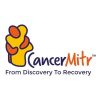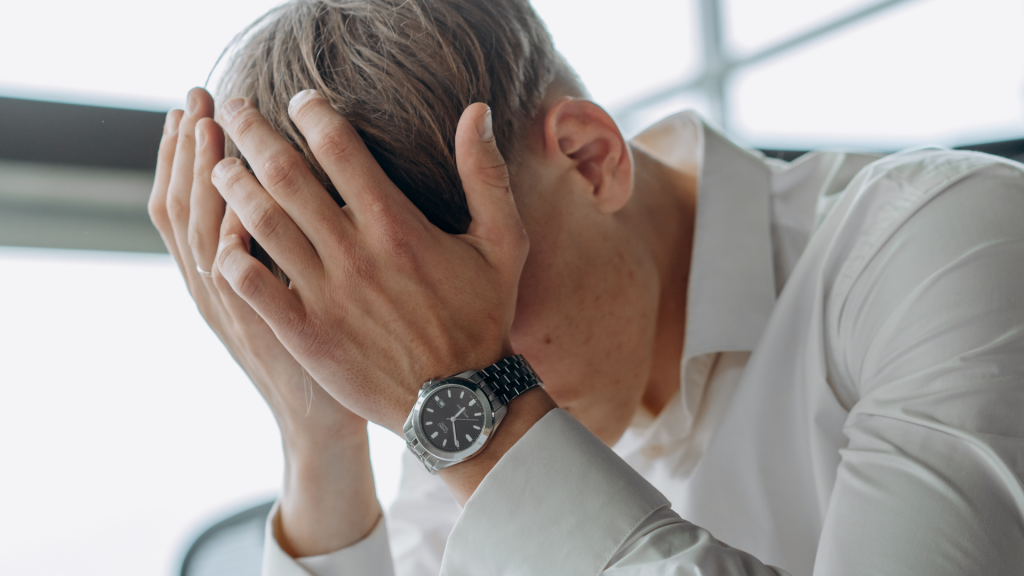- Home
Beyond Exhaustion: Understanding Cancer Fatigue
Feeling tired when sick is normal – a sign of the body’s immune system battling infections.
However, fatigue during cancer treatment is different. It’s not just tiredness; it’s a profound exhaustion that affects the body and mind. Cancer treatments like chemotherapy and radiation take a toll on healthy cells, leaving the body drained. It’s not just physical; it’s emotional, too, with the constant uncertainty and fear. Understanding this exhaustion is crucial for patients, helping them navigate the challenges and prioritize self-care. Why is this condition completely different?
Read this article to get a better understanding of how weakness during cancer treatment is different.
“>”>What is fatigue?
Fatigue is defined as a general feeling of exhaustion, weakness, or a lack of energy. It often accompanies prolonged periods of exertion or follows extended periods of rest. While fatigue is a natural response to the expenditure of physical and mental energy, its impact can be profound, affecting productivity, mood, and overall well-being.
Managing fatigue requires a multifaceted approach that encompasses both lifestyle adjustments and self-care practices. Adequate rest, characterized by sufficient sleep and periods of relaxation, forms the cornerstone of fatigue management. Coupled with a balanced diet rich in essential nutrients, this provides the body with the resources it needs to combat exhaustion and rebuild depleted energy stores.
There are two types of fatigue, depending on symptoms and how long they last;
– Acute fatigue, typically lasting from a few weeks to a month, often arises in response to specific stressors or periods of intense activity.
– Chronic fatigue, on the other hand, persists for longer durations, spanning months or even years, and may be indicative of underlying health issues that warrant attention.
Also read: Benign and malignant tumours: Why is it essential to understand the distinction?
“>What is cancer-related fatigue? “>
Cancer-related fatigue, or CRF, is one of the most common side effects of cancer disease and it’s treatment processes like chemotherapy, radiation therapy, immunotherapy, or surgery. Cancer-related fatigue distinguishes itself from conventional fatigue by its abrupt onset and its independence from physical exertion or typical daily activities. Unlike fatigue stemming from ordinary causes, this particular form presents unique challenges in treatment due to its resistance to resolution through rest or sleep. The extent of cancer-related fatigue is contingent upon both the stage of the disease and the frequency of treatment undergone. This form of fatigue is pervasive, impacting a significant majority of individuals grappling with cancer at some point during their journey with the illness.
“>What causes fatigue in a cancer patient?
The presence of cancer cells in the body can lead to fatigue due to the body’s immune response and the metabolic demands of the cancerous cells. Other than that, fatigue in cancer patients can be caused by various factors, including:
– Cancer treatments: Chemotherapy, radiation therapy, surgery, and other cancer treatments can cause fatigue as a side effect. These treatments can affect healthy cells and tissues in addition to targeting cancer cells, leading to systemic effects such as fatigue.
– Anaemia: Cancer patients may develop anaemia due to factors such as blood loss, bone marrow suppression from chemotherapy, or cancer itself interfering with red blood cell production. Anaemia reduces the oxygen-carrying capacity of the blood, leading to fatigue.
– Pain: Cancer-related pain can interfere with sleep and daily activities, contributing to fatigue.
– Poor nutrition: Cancer and its treatments can affect appetite, digestion, and nutrient absorption, leading to malnutrition and fatigue.
– Emotional distress: The psychological impact of a cancer diagnosis, fear, anxiety, depression, and stress can all contribute to fatigue.
– Medication side effects: Medications used to manage cancer symptoms, such as pain medications, anti-nausea drugs, and antidepressants, can cause fatigue as a side effect.
– Sleep disturbances: Cancer patients may experience difficulty sleeping due to physical discomfort, pain, anxiety, or medication side effects, leading to fatigue during the day.
– Hormonal changes: Certain cancers and their treatments can disrupt hormone levels in the body, leading to fatigue as a symptom.
“>How to manage cancer-related fatigue?
Supplements: Coenzyme Q10 (CoQ10) is an antioxidant essential for cellular energy production, potentially reducing fatigue in chemotherapy patients. Omega-3 fatty acids from fish oil supplements offer anti-inflammatory benefits, aiding in energy improvement and reducing cancer-related inflammation. Vitamin D supplementation can alleviate fatigue by addressing common deficiencies in cancer patients. Iron supplements may correct anaemia-related fatigue, though healthcare consultation is advised due to potential harm from excess iron. B vitamins, particularly B12 and folate, support energy metabolism and may alleviate fatigue in cancer patients with low dietary intake. Magnesium supplementation can combat fatigue and muscle cramps caused by chemotherapy-induced deficiencies.
Note: It is imperative to consult a doctor to get an idea about supplements and to prevent health-related side effects due to the same.
Massage therapy: Massage therapy can provide relief for cancer patients undergoing therapy. It can help alleviate symptoms such as pain, anxiety, fatigue, and nausea. Gentle massage techniques can improve circulation, reduce muscle tension, and promote relaxation, contributing to a sense of well-being. Additionally, massage therapy may enhance the body’s natural ability to heal and cope with the side effects of cancer treatment.
Mental health counselling: A cancer patient’s mental and emotional wellness is critical because stress, worry, and sadness are common. Fatigue can be alleviated with mental health counselling and medicines to manage stress and depression.
Diet and nutrition: Lack of proper nutritional intake contributes to cancer-related fatigue. Onco dietician provides a suitable plan to reduce nausea and vomiting. Patients should have small but frequent meals along with plenty of fluid intake. Doctors also suggest suitable nutritional supplements after checking for deficiencies.
Physical activities: Lack of proper body movement leads to fatigue-like symptoms. People can overcome this through suitable physical exercises like swimming and yoga. Physical activities help in improving body functions, improving strength and minimising pain.
Strategies to relieve pain: Cancer pain is a challenge, and going through this condition increases cancer-related fatigue. Strategies like acupuncture, acupressure, massage therapy, physiotherapy, etc., help manage the symptoms.
“>In conclusion,
Support therapy and cancer treatment go hand in hand. Understanding cancer-related fatigue and its multifaceted nature is crucial for patients, caregivers, and healthcare providers. By addressing the various factors that contribute to fatigue and implementing comprehensive management strategies, individuals can improve their quality of life during cancer treatment. Effective management of fatigue not only enhances physical well-being but also supports emotional and mental health throughout the cancer journey.
“> How can CancerMitr help you? “>
CancerMitr is a health-tech organisation dedicated to guiding and caring for all cancer patients in India and around the world. We provide early screening and testing packages. We work together to hold our patients’ hands from discovery to recovery.
Visit our website for more information on the various packages we provide.

